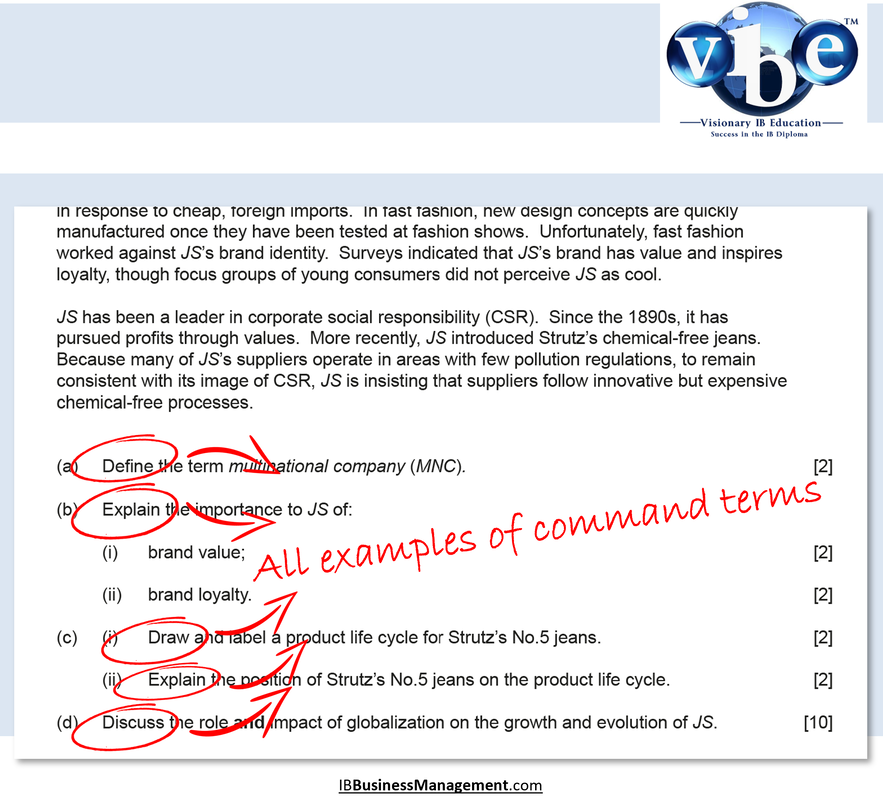|
IB Business Management:
Command terms Command Terms in the IB Business Management course are used in examination questions to indicate depth of treatment. They are classified according to the assessment objective (AO) levels. Teachers and students must be familiar with the assessment objective levels and the command terms in order to understand the depth of treatment required in teaching and exam skills.
|
|
What are command terms?Command words tell you how to answer a specific exam question or complete an assessment task. Different command terms define the level of analysis needed when answering IB Business Management examination questions and therefore correspond with the marks awarded.
The table below summarise how you should use the IB Business Management command terms when you are answering questions and how they apply to particular questions. |
Know thy command termsThe First Commandment of IB Business and Management.
When answering exam questions it is important to identify the COMMAND TERM in each question. These will determine how you should answer the question. Command terms such as 'explain', 'outline', 'analyse', 'to what extent', and so on carry different meanings and this should be reflected in your answers.
The command terms used in IB questions are divided into four levels. For levels 1-3, the higher the level, the greater the degree of sophistication required in an answer. Level 4 are the command terms associated with subject-specific skills. |
The complete list of IB Business Management command terms
– and what they actually mean in terms of answering questions
Your browser does not support viewing this document. Click here to download the document.
IB Business Management command terms flashcards
Knowing your IB Business Management Command Terms will enable you to structure an answer that meets all of the requirements the examiner is looking for (and not waste time including information that they are not looking for!). Once students know their Command Terms their IB examination results sky-rocket, so do spend time getting to know them. The cost/benefit analysis is a no-brainer.









